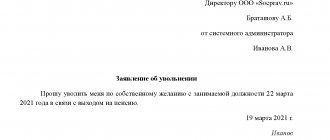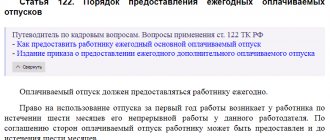It often happens at an enterprise that during the next inventory check, things that are listed in the documentation are missing. With every discrepancy, everyone starts to fuss - financially obligated, responsible people, management, and even subordinates, who are often asked. In the article we will talk about the shortage of goods and material assets (inventory) in the warehouse during inventory, and also describe how to document the posting.
Grounds for conducting an inventory of property
There is a misconception that maintaining a register and census is the prerogative of retail outlets, enterprises and factories that are also involved in sales. In fact, all organizations, even municipal or charitable, as well as private individual entrepreneurs, must regularly check all inventory for availability.
All material assets, which include furniture and household appliances, documents and even office supplies, are subject to recalculation. Depending on whether the organization has been prepared, the audit can be planned (on schedule, once a month) or unscheduled. To draw up a plan, write down a schedule according to which the responsible persons recalculate.
Reasons that may affect the conduct of an unscheduled inventory reconciliation:
- any natural disaster - fire, flood, destruction, as well as fire or flooding caused by workers;
- sale of a company or acquisition of a share, emergence of a new co-founder - any changes at the management level may lead to the need to find out the exact balance;
- theft, suspicion of theft, judicial or investigative proceedings.
Thus, an audit can be initiated for various reasons. But one thing remains mandatory - an order must be issued for the procedure, specifying the date and responsible persons.
Natural loss rates
The correct application of the norms of natural loss when identifying a shortage plays an important role, since it ultimately affects the solution to the question of the source of repayment of the shortage: from the funds of the guilty parties or at the expense of the organization.
Order No. 95 of the Ministry of Economic Development dated March 31, 2003 establishes general rules for determining such standards. He characterizes natural loss as a natural loss of mass of goods and materials while maintaining their consumer properties. Such a loss must occur within the framework of documented standards. In other words, this is the permissible amount of losses during transportation and storage of valuables.
Losses from defects, technological ones, formed during storage (transportation) in conditions of violations of the rules do not count as loss of a natural nature.
In Art. 254 clause 7-2 of the Tax Code of the Russian Federation, which is used for accounting and accounting purposes simultaneously, states that the procedure for determining standards is established at the government level (post. No. 814 of 11/12/02). The resolution talks about the responsibility of various ministries and departments for the development of specific standards. There are quite a lot of such documents, and members of the inventory commission should be familiar with them: depending on the type of activity of the company, controlled values and other nuances.
Thus, the norms of losses during the transportation of alcohol are regulated by Decree of the USSR State Supply Committee dated 12/18/87 No. 153, confectionery goods during storage - by order of the Ministry of Industry and Trade dated 03/01/13 No. 252, mixed feed - by orders of the Ministry of Agriculture dated 04/06/07 No. 198 (storage), Ministry of Agriculture No. 569, Ministry of Transport No. 164 dated 11/19/07 (transportation), etc.
What is an inventory shortage?
The accounting department of any company is usually afraid of this term because when there is a shortage, it is much more difficult to tie up accounting loose ends than when there is a surplus. But the discovery of a shortage of products or material resources almost always occurs during an inventory of property.
A shortage of goods and materials is the absence of the required amount of money, goods or furniture, items belonging to the organization and recorded in the register. To carry out an audit, everything must first be put on the balance sheet - listed in the accounting documents. Only after these procedures can an inventory be carried out and indicators be verified.
Another feature of this process is the indication of the value of the item. If a computer is lost in a department, then employees who are financially responsible will compensate for the costs of purchasing it. Therefore, in accounting, when making an inventory, cost is always taken into account.
The pharmacy also has its own rules. Despite the fact that medications are purchased at cost, the full retail price may be withheld from the pharmacist or other person responsible for the shortage in the pharmacy when taking inventory of a person. The situation is the same with stores. This is because a shortage is considered a loss—the owner loses not only the purchase price, but also the money he would have received upon sale.
Shortages include spoiled product, broken items, and broken dishes. Typically, this category is displayed in accounting and is posted as written off as expenses. Sometimes compensation is still required, for example, from waiters for broken glasses, since they are responsible for it. However, if the damaged goods were nevertheless sold, but at a reduced price, the shortage includes the difference between the full and final receipt.
An audit will not replace an inventory
Internal control is carried out not only by the management bodies of the economic entity, but also by the audit commission (auditor) of the economic entity (clause 18.1 of Information No. PZ-11/2013).
In a corporate organization, the election of an audit commission (auditor) falls within the exclusive competence of the highest body of such an organization (Part 2 of Article 65.3 of the Civil Code of the Russian Federation).
From the perspective of labor legislation, an economic entity is an employer. Article 20 of the Labor Code of the Russian Federation defines an employer as an individual or legal entity that has entered into an employment relationship with an employee.
In cases provided for by federal laws, another entity entitled to enter into employment contracts may act as an employer. But the audit commission (auditor) does not have the authority to conclude employment contracts. Thus, in an LLC, the auditor is considered a body of the company and is elected exclusively by the general meeting of its participants. A person performing the functions of the sole executive body of a company cannot be a member of the audit commission of the company or an auditor (clause 6 of Article 32, subclause 5 of clause 2 of Article 33 of Law No. 14-FZ).
Based on Article 47 of Law No. 14-FZ, the auditor of the company has the right at any time to conduct inspections of the financial and economic activities of the company and have access to all documentation relating to the activities of the company. At the request of the auditor, the director of the company, as well as employees of the company, are obliged to give the necessary explanations orally or in writing.
note
Shortage is the physical absence of cash and material resources, including goods and fixed assets, identified as a result of control procedures, audits, and inventory (clause 172, section 2 “GOST R 51303-2013. National standard of the Russian Federation. Trade. Terms and definitions” , approved by order of Rosstandart dated August 28, 2013 No. 582-st).
Thus, shortages can also be identified as a result of an audit. However, the auditor does not have the right to take any action to recover damages from employees. Article 247 of the Labor Code of the Russian Federation vests the corresponding powers only with the employer. It reads:
- before making a decision on compensation for damage by specific employees, the employer is obliged to conduct an inspection to establish the amount of damage caused and the reasons for its occurrence;
- To conduct such an inspection, the employer has the right to create a commission with the participation of relevant specialists.
Let us add on our own: such specialists can be members of the audit commission.
So, it is unlawful to equate an audit with an inventory, although the Ministry of Finance of Russia in its letter dated February 13, 2009 No. 03-03-06/4/4 did not see any difference between these activities. True, the letter is devoted to tax legal relations. Meanwhile, in the tax sphere, paragraph 1 of Article 11 of the Tax Code applies, by virtue of which the concepts and terms of civil and other branches of legislation of the Russian Federation should be applied in the meaning in which they are used in these branches of legislation, unless otherwise specifically provided for by this code.
As a result, we believe: following an audit that reveals a shortage, the manager is obliged to schedule an unscheduled inventory of the same assets.
Ready-made solutions for all areas
Stores
Mobility, accuracy and speed of counting goods on the sales floor and in the warehouse will allow you not to lose days of sales during inventory and when receiving goods.
To learn more
Warehouses
Speed up your warehouse employees' work with mobile automation. Eliminate errors in receiving, shipping, inventory and movement of goods forever.
To learn more
Marking
Mandatory labeling of goods is an opportunity for each organization to 100% exclude the acceptance of counterfeit goods into its warehouse and track the supply chain from the manufacturer.
To learn more
E-commerce
Speed, accuracy of acceptance and shipment of goods in the warehouse is the cornerstone in the E-commerce business. Start using modern, more efficient mobile tools.
To learn more
Institutions
Increase the accuracy of accounting for the organization’s property, the level of control over the safety and movement of each item. Mobile accounting will reduce the likelihood of theft and natural losses.
To learn more
Production
Increase the efficiency of your manufacturing enterprise by introducing mobile automation for inventory accounting.
To learn more
EGAIS
Eliminate errors in comparing and reading excise duty stamps for alcoholic beverages using mobile accounting tools.
To learn more
RFID
The first ready-made solution in Russia for tracking goods using RFID tags at each stage of the supply chain.
To learn more
Certification for partners
Obtaining certified Cleverence partner status will allow your company to reach a new level of problem solving at your clients’ enterprises.
To learn more
Inventory
Use modern mobile tools to carry out product inventory. Increase the speed and accuracy of your business process.
To learn more
Mobile automation
Use modern mobile tools to account for goods and fixed assets in your enterprise. Completely abandon accounting “on paper”.
Learn more Show all automation solutions
Seller's shortage
The actual presence of inventory items is revealed during the inventory (Part 2 of Article 11 of the Federal Law “On Accounting”). We remind you that the inventory procedure is regulated by:
- Guidelines for inventory of property and financial obligations (approved by order of the Ministry of Finance of Russia dated June 13, 1995 No. 49);
- subsection IV “Inventory and inspection” of section I of the Methodological guidelines for accounting of inventories (approved by order of the Ministry of Finance of Russia dated December 28, 2001 No. 119n).
Inventories are carried out in a planned manner established by the head of the organization. However, an inventory is mandatory before drawing up annual financial statements (except for property, the inventory of which was carried out no earlier than October 1 of the reporting year), when financially responsible persons change, or when facts of property theft are revealed.
Verification of the actual availability of property is carried out with the obligatory participation of financially responsible persons.
EXAMPLE 1. CASE FROM PRACTICE
During the inventory process, the seller was informed about a sudden attack of illness in a disabled child. Having warned the administration about the impossibility of further participation in the inventory, the employee left the store. At the same time, she asked to postpone the inventory to the next day. Her request was not fulfilled and the inventory was completed without her participation. As a result of the inventory, a shortage was identified. However, under such circumstances, the employee’s financial liability is excluded. Firstly, her action was dictated by extreme necessity, and secondly, in the absence of a financially responsible person, the employer was obliged to suspend the inventory.
Based on Article 246 of the Labor Code, the amount of damage caused to the employer due to loss and damage to property is determined by actual losses, calculated on the basis of market prices prevailing in the area on the day the damage was caused, but not lower than the value of the property according to accounting data.
The actual cost of missing inventory items is reflected in the debit of account 94 “Shortages and losses from damage to assets”:
DEBIT 94 CREDIT 41
— reflects the amount of shortage of goods.
At the same time, VAT amounts on written-off goods that were previously lawfully accepted for deduction are not subject to restoration (decision of the Supreme Arbitration Court of the Russian Federation dated May 19, 2011 No. 3943/11).
Based on Article 247 of the Labor Code, requiring a written explanation from the employee to establish the cause of the damage is mandatory. In case of refusal or evasion of the employee from providing the specified explanation, a corresponding act is drawn up.
Reasons for the shortage
The manager should not have a negative and misunderstanding attitude towards inventory, because often people go into the red not because of poor performance of duties, but for reasons that are completely unrelated to the employees themselves. They should be taken into account. Why the balance doesn't work out:
- Theft. Proving it is often quite difficult, especially if there are no CCTV cameras.
- Emergencies - fires, floods, damaged engineering systems (electricity went out for a day, a lot of food in refrigerators spoiled).
- Costs of defects, as well as damage to goods. They don’t charge money for trying on clothes, but while putting them on, they can get dirty or torn. I have to write it off.
- Error during sale. Sometimes products, especially products without a barcode, get mixed up.
- The person who is responsible for the inventory shortage may make a mistake in the calculations and write down the wrong data.
Since all of the above reasons are presented in a different order, you should first analyze what caused the shortage. Usually all responsible persons write explanatory notes for each case.
Results
Inventory results are reflected in accounting according to a strictly regulated algorithm in special statements, inventories and journals. Surpluses are received as other income of the company, and shortages are written off at the expense of the guilty parties, and if there are none, they are reflected in the accounts as other expenses.
Sources: order of the Ministry of Finance of the Russian Federation dated July 29, 1998 No. 34n
You can find more complete information on the topic in ConsultantPlus. Free trial access to the system for 2 days.
The procedure for registering a deficit
First, you need to collect all the documents confirming the transactions, including the inventory report and sales receipts. Based on this, a write-off order is drawn up and signed.
Otherwise, if the costs turned out to be too high or a large batch of goods was damaged, an internal investigation is carried out for negligence or theft.
Not everything is taken into account so scrupulously. There are certain categories of goods and materials that are not considered special values due to their cost, so any quantity can be recorded as expenses.
There is another option for registering a deficit - withholding from the culprit. Usually the amount is deducted from his salary. This happens in cases where guilt is proven.
How to write off shortages during inventory
Often, deterioration depends on customers, clients or natural wear and tear, time. In such cases, the registration procedure is as follows: you need to accurately calculate the loss expressed in monetary units, and then issue an order according to which this audit result should be included in the category of business expenses. In this case, you should carefully ensure that the monthly amounts do not exceed a certain norm, and also have confirmation in the form of cash receipts and explanatory notes, otherwise you may be charged with embezzlement.
There are predetermined standards, they are also called distribution costs. These include all shortages that were caused by the buyer. Let's take an example: in a grocery store, a customer accidentally broke an item; he is not obligated to pay for it. But if the amount of costs exceeds the norm, then you need to look for the culprit. For example, if the entire rack was hit, then perhaps the merchandiser is to blame for not arranging the products according to the rules.
And these requirements are most strictly imposed in government agencies. In a commercial company, managers often turn a blind eye, even when standards are clearly exceeded. But in the government structure, any value is part of the state budget, so the balance there is maintained very strictly. The shortage is seen as causing direct damage to the country. In Soviet times, this could have resulted in capital punishment. If the manager gives an order to write off the shortage based on the inventory results for a larger amount than required, then the fact will be considered as misuse of public funds and embezzlement. There is criminal liability for this.
Material liability of the employee
There is no doubt that the safety of the company's assets is ensured through the financial responsibility of its employees.
By virtue of Article 232 of the Labor Code of the Russian Federation, an employee who causes damage to the employer shall compensate it according to the rules established by this code. These rules are established by Article 238 of the Labor Code of the Russian Federation. Namely: the employee is obliged to compensate the employer for direct actual damage caused to him. At the same time, lost income (lost profits) cannot be recovered from the employee.
However, it is possible to recover damages without restrictions only if the employee is fully financially responsible. The relevant cases are listed in Article 243 of the Labor Code of the Russian Federation. Among them is a shortage of valuables entrusted to the employee on the basis of a special written agreement or received by him under a one-time document.
In accordance with Article 244 of the Labor Code of the Russian Federation, a special written agreement must be understood as agreements on full financial responsibility - individual or collective (team). Examples of one-time documents include:
- a power of attorney issued to an employee to receive certain valuables;
- expenditure cash order for the issuance of funds to an accountable person for upcoming expenses;
- invoice for internal movement, transfer of goods, containers (according to the unified form No. TORG-13).
However, the head of the organization bears full financial responsibility by force of law - on the basis of the first part of Article 277 of the Labor Code of the Russian Federation. For this reason, an agreement on the full financial responsibility of the manager is not drawn up.
In cases not expressly provided for in Article 243 of the Labor Code, the employee will bear financial liability for damage caused only within the limits of his average monthly earnings. The basis is Article 241 of the Labor Code of the Russian Federation. Such financial liability is called limited (letter of Rostrud dated October 19, 2006 No. 1746-6-1). According to the author, the remaining part of the amount of damage that cannot be recovered from the employee can be presented to the head of the company - of course, if there are legal grounds for this (clause 9 of the resolution of the Plenum of the Supreme Court of the Russian Federation dated November 16, 2006 No. 52 “On the application by courts of legislation governing financial liability of employees for damage caused to the employer”).
Consequences for the financially responsible person
The person responsible for inventory items writes an explanatory note addressed to his immediate superiors. This document is provided by management within two days from the date of the relevant request, usually it arrives immediately after accounting.
Based on this paper, a decision is made, which consists of writing off the company’s expenses or deducting losses from the employee. The verdict is rendered in accordance with the admission of the share of guilt by the MOL.
The employee must write an explanatory note
In accordance with the requirements of Part 2 of Art. 247 of the Labor Code of the Russian Federation, a financially responsible employee whose shortage is detected must be required to provide a written explanation. Refusal to provide an explanatory note must be reflected in the act.
In practice, to carry out this procedure for bringing to responsibility, you can proceed as follows.
It is necessary to notify the employee about requesting an explanation from him regarding the shortage of inventory items.
If the employee refuses to give them, he should be given written notice requesting an explanation and required to sign for receipt of the notice.
If the employee refuses to sign the notice, it should be read aloud to the employee in the presence of witnesses.
If after this the employee refuses to give a written explanation, then in this case an act of refusal or evasion of the employee from giving an explanation is drawn up. The employee must also be familiarized with the act against signature; in case of refusal, a corresponding note is made about this.
The Plenum of the Armed Forces of the Russian Federation in Resolution No. 52 actually established a presumption of guilt in relation to financially responsible persons, that is, if the employer has proven the legality of concluding an agreement with an employee on full financial responsibility and creating conditions for the safety of entrusted valuables, then if this employee has a shortage, the latter is obliged to independently prove the absence of his guilt in causing damage. Thus, it is not the employer who must prove the employee’s guilt, but the employee who must prove that the shortage was not his fault. However, we still do not recommend punishing financially responsible persons without conducting an investigation and appropriate documentation.
How to recover the shortfall from the guilty parties
The consequences can be serious, including criminal penalties + compensation for costs. Most often, management positions and senior accountants are sanctioned. The level of financial responsibility is discussed during employment and specified in the contract. Sometimes the responsibility may be collective or partial. Then the shortage is removed from all employees.
The deficit is withheld from wages. First, the result of the inspection and a conclusion on it from management with a decision on penalties are provided. Then this amount is deducted from the next paycheck. If the culprit at this moment goes through the dismissal procedure, then the debt is deducted from the last salary. If an employee refuses to pay the funds, he can be held accountable through the court.
Recovery of damages
The employer must prove:
- absence of circumstances excluding the employee’s financial liability;
- illegality of the behavior of the harm-doer;
- the employee’s guilt in causing the damage;
- the causal relationship between the employee’s behavior and the damage that occurred;
- the presence of direct actual damage;
- the amount of damage caused;
- compliance with the rules for concluding an agreement on full financial liability (clause 4 of the resolution of the Plenum of the Armed Forces of the Russian Federation dated November 16, 2006 No. 52).
Failure to prove one of these circumstances excludes the employee’s financial liability. If the employer proves the above circumstances, the employee can prove the absence of his guilt in causing the damage.
The procedure for collecting damages is established by Article 248 of the Labor Code of the Russian Federation.
Collection of the amount of damage caused, not exceeding the average monthly earnings of the employee, does not require the consent of the employee and is carried out by order of the employer. However, such an order must be made no later than one month from the date of final determination by the employer of the amount of damage caused by the employee. If the month period is missed, then collection can only be carried out by the court. With such an amount of damage, it does not matter what kind of financial liability the employee bears - limited or full.
If the employee does not agree with this penalty, he has the right to appeal the employer’s actions in court.
If the amount of damage exceeds the employee’s average monthly earnings and he does not agree to voluntarily compensate for the damage caused to the employer, then recovery can only be carried out by the court. This procedure applies in a situation of full financial responsibility.
In any case, remember: based on Article 138 of the Labor Code of the Russian Federation, the total amount of all deductions for each payment of wages cannot exceed 20%.
EXAMPLE 2. REFLECTING THE SHORTAGE
The amount of the shortage that arose through the fault of the seller is 5,000 rubles, which does not exceed his average monthly earnings.
The seller’s salary is 20,000 rubles, minus personal income tax – 17,400 rubles. (RUB 20,000 × (100 – 13)%). A one-time deduction from the seller’s salary is possible in the amount of 3,480 rubles. (RUB 17,400 × 20%). Under such circumstances, the accountant of a trade organization will make the following entries: DEBIT 94 CREDIT 41
- 5000 rubles.
– a shortage of goods was identified based on the results of the inventory; DEBIT 73 CREDIT 94
- 5000 rub.
– an order was issued from the head of the company to collect the shortfall from the seller; DEBIT 70 CREDIT 73
- 3480 rub.
– withheld from the seller’s salary to compensate for damage in the first month; DEBIT 70 CREDIT 73
- 1520 rub. (5000 – 3480) – withheld from the seller’s salary for final compensation for damage in the second month.
An employee who is guilty of causing damage to the employer may voluntarily compensate for it in whole or in part. It is necessary to distinguish compensation from collection: the restriction on deductions from wages does not apply to compensation. By agreement of the parties to the employment contract, compensation for damage by installments is allowed. In this case, the employee submits to the employer a written obligation to compensate for damages, indicating specific payment terms.
What if the damage was caused by the fault of the manager?
Let us turn to the clarifications of the resolution of the Plenum of the Supreme Court of the Russian Federation dated 06/02/2015 No. 21 “On some issues that arose with the courts when applying the legislation regulating the work of the head of the organization and members of the collegial executive body of the organization” (paragraphs 5, 6).
In accordance with part one of Article 277 of the Labor Code of the Russian Federation, the head of the organization (including the former) bears full financial responsibility for direct actual damage caused to the organization. Bringing the manager to financial liability in the amount of direct actual damage is carried out in accordance with the provisions of Chapters 37 “General Provisions” and 39 “Financial Liability of the Employee” of the Labor Code of the Russian Federation.
In cases provided for by federal laws (for example, Article 53.1 of the Civil Code of the Russian Federation, Article 25 of the Federal Law of November 14, 2002 No. 161-FZ “On State and Municipal Unitary Enterprises”, Article 71 of the Federal Law of December 26, 1995 No. 208-FZ “On Joint-Stock Companies”, Article 44 of the Federal Law of 02/08/1998 No. 14-FZ “On Limited Liability Companies”, etc.) the head of the organization (including the former) compensates the organization and lost income (lost profits), caused by his guilty actions.
Ready-made solutions for all areas
Stores
Mobility, accuracy and speed of counting goods on the sales floor and in the warehouse will allow you not to lose days of sales during inventory and when receiving goods.
To learn more
Warehouses
Speed up your warehouse employees' work with mobile automation. Eliminate errors in receiving, shipping, inventory and movement of goods forever.
To learn more
Marking
Mandatory labeling of goods is an opportunity for each organization to 100% exclude the acceptance of counterfeit goods into its warehouse and track the supply chain from the manufacturer.
To learn more
E-commerce
Speed, accuracy of acceptance and shipment of goods in the warehouse is the cornerstone in the E-commerce business. Start using modern, more efficient mobile tools.
To learn more
Institutions
Increase the accuracy of accounting for the organization’s property, the level of control over the safety and movement of each item. Mobile accounting will reduce the likelihood of theft and natural losses.
To learn more
Production
Increase the efficiency of your manufacturing enterprise by introducing mobile automation for inventory accounting.
To learn more
EGAIS
Eliminate errors in comparing and reading excise duty stamps for alcoholic beverages using mobile accounting tools.
To learn more
RFID
The first ready-made solution in Russia for tracking goods using RFID tags at each stage of the supply chain.
To learn more
Certification for partners
Obtaining certified Cleverence partner status will allow your company to reach a new level of problem solving at your clients’ enterprises.
To learn more
Inventory
Use modern mobile tools to carry out product inventory. Increase the speed and accuracy of your business process.
To learn more
Mobile automation
Use modern mobile tools to account for goods and fixed assets in your enterprise. Completely abandon accounting “on paper”.
Learn more Show all automation solutions
Circumstances excluding financial liability
When planning to recover damages, it is necessary to take into account the provisions of Article 239 of the Labor Code of the Russian Federation. The fact is that the employee’s financial liability is excluded in cases of damage due to:
- force majeure, normal economic risk, extreme necessity or necessary defense;
- failure by the employer to fulfill the obligation to provide appropriate conditions for storing property entrusted to the employee.
We believe it would be appropriate to explain the regulatory grounds for exemption from liability.
Force majeure refers to extraordinary and unavoidable circumstances under given conditions (clause 3 of Article 401 of the Civil Code of the Russian Federation). The requirement of emergency implies the exclusivity of the circumstance in question: its occurrence is not usual in specific conditions (clause 8 of the resolution of the Plenum of the Supreme Court of the Russian Federation dated March 24, 2016 No. 7). Such circumstances include, in particular, natural disasters (earthquake, flood, hurricane), fire, mass diseases (epidemics), strikes, military operations, terrorist acts, sabotage (clause 1.3 of the appendix to the Resolution of the Board of the Chamber of Commerce and Industry of the Russian Federation dated December 23, 2015 No. 173-14). Obviously, such events do not depend on the will of the parties to the employment contract.
Normal economic risk may include the actions of an employee that correspond to modern knowledge and experience, when the set goal could not be achieved otherwise, the employee properly fulfilled his job duties, showed a certain degree of care and prudence, took measures to prevent damage, and the object the risk was material assets, and not the life and health of people (clause 5 of the resolution of the Plenum of the Supreme Court of the Russian Federation of November 16, 2006 No. 52).
note
Direct actual damage is understood as a real decrease in the employer’s available property or deterioration in the condition of said property, as well as the need for the employer to make costs or excessive payments for the acquisition, restoration of property or for compensation for damage caused by the employee to third parties (Part 2 of Article 238 of the Labor Code of the Russian Federation) .
In our opinion, an illustration of a normal economic risk is the shortage of goods due to theft by customers in the sales areas of self-service stores (decision of the Supreme Arbitration Court of the Russian Federation dated December 4, 2013 No. VAS-13048/13). In this regard, you can use the Procedure for approval and conditions for applying differentiated amounts for writing off losses of goods in self-service stores (departments, sections), approved by Order of the Ministry of Trade of the RSFSR dated July 8, 1984 No. 194. Moreover, such losses within the limits of natural loss norms are accepted for profit tax purposes ( letter of the Ministry of Finance of Russia dated November 29, 2005 No. 03-03-04/1/392, resolution of the Federal Antimonopoly Service of the Volga District dated July 18, 2013 in case No. A65-23469/2012).
And the infliction of harm by a person in a state of extreme necessity implies the elimination of a danger that directly threatens the personality and rights of this person or other persons, as well as the legally protected interests of society or the state, if this danger could not be eliminated by other means and if the harm caused is less significant than prevented harm (Article 2.7 of the Code of Administrative Offenses of the Russian Federation, Part 1 of Article 39 of the Criminal Code of the Russian Federation).
Finally, the state of necessary defense presupposes the protection of the personality and rights of the defender or other persons, the legally protected interests of society or the state from a socially dangerous attack, if this attack was associated with violence dangerous to the life of the defender or another person, or with an immediate threat of the use of such violence ( Part 1 of Article 37 of the Criminal Code of the Russian Federation). Such situations are typical for robbery for the purpose of stealing someone else's property, committed with the use of violence dangerous to life or health, or with the threat of such violence (Part 1 of Article 162 of the Criminal Code of the Russian Federation). Violence dangerous to life or health should be understood not only as violence that resulted in the infliction of grave and moderate harm to the health of the victim, but also infliction of minor harm to health, causing a short-term health disorder or a slight permanent loss of general ability to work (clause 21 of the resolution of the Plenum of the Supreme Court of the Russian Federation dated December 27, 2002 No. 29 “On judicial practice in cases of theft, robbery and robbery”).
This “excursion” into jurisprudence is intended to show that resolving disputes about the financial responsibility of an employee requires a certain legal literacy.
Explanatory: how to reflect the shortage
In the document, the financially responsible person indicates, in addition to his personal data:
- when the incident occurred;
- a detailed description of the event - what happened, for what reasons, whose fault;
- the sequence of one’s own actions is an attempt to prevent an incident.
You must sign, initial and date the explanatory note.
A sample of its preparation
Shortage order
Based on the explanatory note, a decision must be made:
- the employee is guilty;
- innocent;
- it is necessary to assemble a commission to investigate.
As a result, a paper must be written to confirm one of the three intentions. It states:
- a brief description of the situation;
- persons involved;
- resolution.
Drafting sample
Shortage in stock
Warehouses have a constant flow of inventory items, so goods are often lost here. Let's figure out why this happens.
Causes
- Lost documents or filled them out incorrectly. The invoice arrived, they issued the commodity units according to it, but did not put it in the book.
- Lack of equipment, poor accounting conditions.
- Unforeseen factors that led to damage.
- Theft.
What to do
It is worth conducting an investigation according to the above standards, that is, start by obtaining explanatory notes, then issue an order. On its basis, make either a write-off as an expense or a recovery from the culprit. We also recommend installing CCTV cameras to monitor possible acts of theft.
How to avoid
We recommend keeping records using special devices and programs. Based on them, lists and documents are independently generated. This greatly simplifies all warehouse activities - deliveries and shipments. You can order such equipment and software at.
If your enterprise uses “1C: Accounting” in any delivery, “1C: UPP” or 1C for a construction organization, and you plan to carry out inventory only on barcodes (you will not use RFID), then a special driver for inventory is completely suitable for you from Cleverens, the delivery package of which includes all the programs and processing necessary both for printing labels and for working with the data collection terminal.
If you are using 1C, but you plan to implement RFID, then another program is suitable for you - Cleverence: Property Accounting. Also, there are software products for stores and warehouses that will help optimize and automate inventory accounting, as well as eliminate cases of shortages during inventory.
See how Magazin 15 helps automate the inventory process in a chain of building materials hypermarkets. As a result of implementation, the process became much simpler and made it possible to abandon the involvement of outsourcing companies.






